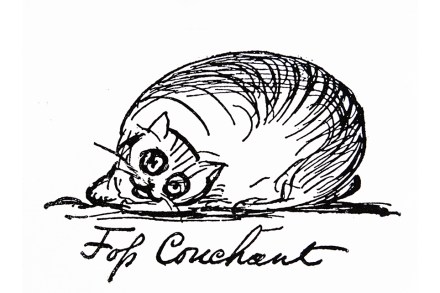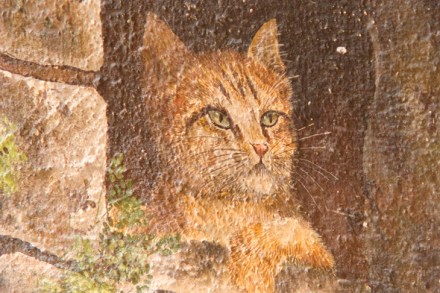The naming of cats
All sorts of animals have been kept as pets over the centuries. We know of sparrows in Catullus and John Skelton. There is a badger with a collar in a fresco by Signorelli – probably not much more biddable than the lobster Gerard de Nerval supposedly took for walks in Paris. The word ‘puss’ seems not to have referred to cats before the late 19th century but to hares, either a pet one (William Cowper had three, of whom Puss was sweet-natured and Tiney ‘the surliest of his kind’), or one being hunted in Surtees. Dogs always occupied a special place, with names and a position in the household. Cats



